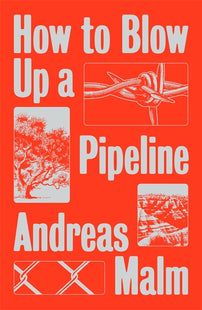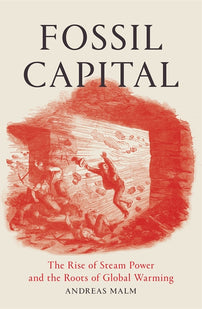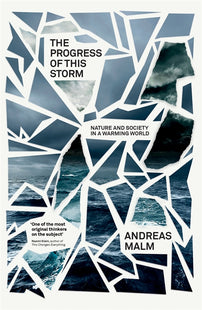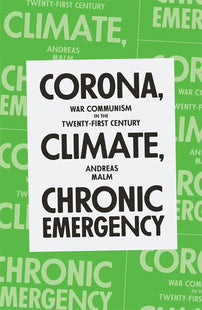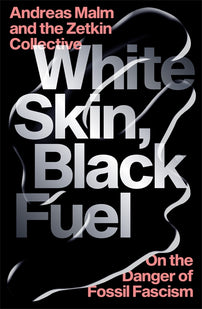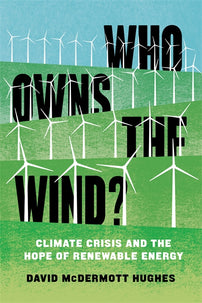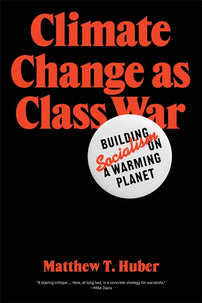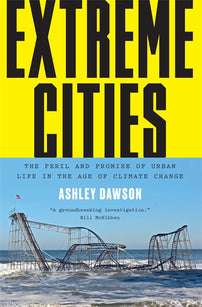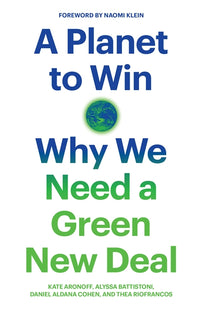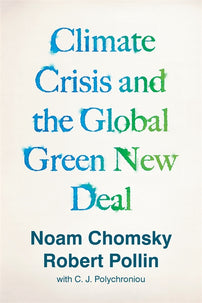We Must Nationalise Total
In this interview, Verso author Andreas Malm talks climate politics, the state, and revolution, arguing that the left must politicise the climate crisis in order to effectively fight its driving forces.

Andreas Malm
NB: Originally published in Socialter 47, Aug-Sep 2021
Andreas Malm is a lecturer in the human geography department at Lund University, Sweden. Active in the struggle against climate change, his research focuses on the links between the development of fossil energies and the rise of capitalism. He is a member of the editorial committee of Historical Materialism.
Faced with the scale and multiplicity of ecological battles to wage, the initial reflex is to feel crushed. Against this collective paralysis, which only profits the guardians of the capitalist temple and impels us daily closer to climate chaos, the Swedish essayist and activist Andreas Malm calls for an ‘ecological Leninism’. In other words, use the crises under way to attack whatever keeps ‘business as usual’ going, with simple and concrete objectives, and ready to resort to sabotage. Interview by Philippe Vion-Dury.
It’s become a bit of a cliché, but let’s put the question all the same: what lessons do you draw from the Covid-19 crisis?
There are many lessons we should learn. Above all that, as far as I know, no concerted effort has yet been made to tackle the roots of the problem – in other words, the circumstances and processes by which these infectious diseases emerge, suddenly passing from wild animal populations to humans. You would think that the rich, the World Bank or the IMF, would be asking how to ensure that a health catastrophe like this won’t occur again. There are certainly some efforts in China to prohibit the trade and consumption of wild species. But I am not aware, for example, of any initiative that aims to stop tropical deforestation. In actual fact, this massively accelerated in 2020, making the year of the pandemic and its lockdowns the third worst year in terms of deforestation since this global index was established in 2002.
In particular, the ecological dimensions of the catastrophe are missing from public discourse. The accent is placed almost entirely on vaccinations and forms of lockdown. There is only a struggle against the symptoms, never against the causes… In this respect, there is a remarkable similarity with the climate situation. Perhaps a lesson can be drawn from this, that there is no collective rationality able to impel governments to take the necessary measures without strong popular pressure. But that is completely missing on this front. No climate or environmental movement has been able to mobilise and attract public attention to the driving forces behind new diseases.
Initially, many observers connected ecology with social questions through the idea of zoonotic overspill. Today, this has disappeared. Have the left and ecologists missed a historic opportunity?
I think so. The pandemic broke out at a moment when the climate movement had reached its apogee in the countries of the North, with the mobilisations of 2019. Knowledge about zoonoses was very limited in the movement, and everyone was caught short – ideologically as well as scientifically. The decision was then taken to suspend all activities, to stay at home and try to conduct the struggle remotely over Internet and social networks. With hindsight, this was a mistake, as the only force that could have emphasised the ecological aspects of the pandemic throughout the crisis was precisely the climate movement, which should have come out in the streets and said to people: ‘you’re unhappy, your friends are dying, you’re fed up with sitting at home and you don’t want a repeat of this? Okay, join with us and make sure that tropical deforestation stops.’ It wasn’t impossible to have a social mobilisation during the pandemic: think of the uprising around the murder of George Floyd, which gave rise to the biggest demonstrations ever seen in the United States, in the midst of the pandemic, without worsening contagion because people respected certain basic health principles.
[book-strip index="1" style="display"]Ecologists often warn that we are heading towards a deterioration in living conditions if we do nothing about climate and biodiversity… And here we are: in the last eighteen months we’ve had deteriorated living conditions due to an ecological catastrophe. Perhaps this should be emphasised more?
It certainly should. And I am very disturbed by recent reports of bat populations migrating suddenly and chaotically in Australia, for example, due to rising temperatures. Bats are reservoirs of coronavirus. It’s as if the world has not noticed or learned anything. So yes, there is a quite deplorable lack of awareness. Which means that the likelihood that we end up in the near future with a similar pandemic, or an even worse one, is very great.
In your latest book, Corona, Climate, Chronic Emergency, you make a parallel between our present situation and that of Lenin in 1917. Why?
Clearly, the situation is not the same. Our political world is completely different. That said, the First World War can be seen as the catastrophe that really began the twentieth century. Governments throughout the world, particularly in Europe, were prepared to send millions of soldiers to die on the battlefield without a valid reason. Individuals such as Vladimir Ilyich Ulyanov, known as Lenin, and Rosa Luxemburg, then asserted that if we wanted to stop this catastrophe, we had to depose its artisans and transform the war into a political crisis. That is how the situation today is analogous. We are faced with a chronic emergency which will continue for the long term and worsen on many fronts because we have ruling classes that maintain the driving forces of this ecological crisis. Our political task is precisely that which Lenin and Rosa Luxemburg had to confront: how to transform these moments of crisis, such as the pandemic, into political crises that shatter the driving forces behind these problems.
You quote Lenin when he said that ‘to temporise in insurrection is death…It is impossible to save anything now by half-measures.’ There is no place here for reformism. Where do you situate yourself between the three classic branches of political transformation, i.e. reformism, revolutionary reformism and revolution?
If I understand you correctly, I would say that I situate myself rather on the side of revolutionary reformism, because I do not think that the left or the climate movement should demand today the complete abolition of capitalism, should seek to make a clean slate. To start with, no revolution of that kind ever succeeded. Lenin himself did not demand such a thing, the Bolshevik slogan was peace, bread and land. Those were the key demands that fuelled their revolutionary project. The left has spent around two centuries trying to abolish capitalism, so far without success, and it finds itself today, throughout the world, in a state of unprecedented weakness. To imagine that we could pass from our dreadful present weakness to the total abolition of capitalism tomorrow is for me completely unrealistic. Besides, we have to act extremely rapidly given the timescale of the climate crisis, and we cannot give ourselves tasks that are impossible to accomplish in this short space of time. But it is precisely because the timescale is so short and the change needed so colossal that we have to attack the very powerful interests at the heart of the capitalist economy. Take Total for example – the largest French private company – which continues to grow in the Arctic or in East Africa by constructing what will soon be the longest oil pipeline in the world.[1] That must stop. We cannot have companies of this type, which profit from the expansion of fossil fuel production. These companies must be closed and transformed into something completely different. Those are the kinds of ‘reform’ I would like to see: nationalise Total, immediately end completely its production of oil and gas, and transform it into a company devoted to the capture and sequestration of atmospheric CO2, for example. To achieve this, we need a different kind of French state, acting in response to massive popular pressures. And if this reform were brought about, would it also open up a process of reorganisation of French society? I don’t know. But these are fundamental demands, concrete ones, that we have to formulate. At the stage of the conflict where we are at present, therefore, it is not a matter of saying that we have to get rid of the capitalist system from one day to the next, but certainly to formulate extremely basic and necessary demands – in this case to take control of oil and gas companies, and then see where we go from there.
Perhaps the most difficult change concerns our way of life, the goods we produce, the way in which we consume… Fossil energies are one thing, but there is also the extraction of metal to make cars or buses, natural resources to build homes, etc. The idea of sobriety and sharing goes against the desire produced by society to live like the upper classes. How do we convince the population?
Two things. On a strategic level, it is logical to be a bit down to earth in the sense that, to start a process of radical transformation of society, you have to begin somewhere and identify an enemy – or a force – that is actually at the centre of the disorder and must be defeated. And once you have achieved this, you move on to the following steps. So, to concentrate on the oil and gas companies doesn’t mean that everything is perfect with solar or wind energy, electric cars, etc., but that this is what is imperative strategically. Now, I also think that we can envisage a transition towards a society without fossil fuels, which will improve people’s quality of life and is not just a question of sacrifice. Certain sacrifices will have to be accepted, of course, such as aviation as we know it, and by the richest people first of all. But ordinary workers will also have to accept certain sacrifices – the overconsumption of meat, for example. It is possible to explain to people in a sufficiently convincing way that they have much to gain from such a transition: working less, not seeing their job suddenly offshored to China, etc.
Many currents in the ecological movement are inspired by anarchism, and have a pretty hostile attitude towards the state, seeing it as centralising, concerned to develop its power and its economy, fundamentally anti-democratic… What is your position towards the state?
In my ideal world, power would be decentralised. But we are at the opposite extreme from an ideal situation, and we are heading closer towards nightmare and dystopia. To wait for another form of state would therefore be both crazy and criminal. The only way to escape from the impasse, I believe, is a centralised power capable of braking the forces of destruction. Take the recent legal case where The Hague tribunal decided that Shell has to reduce its CO2 emissions by 45 per cent by 2030. Of course, we don’t know if this will be carried out. But, in principle, what this suggests is that you can have a state apparatus ordering an oil and gas company to change its practices, and perhaps, in the end, to cease its activities completely. I can see no other institution than the state, in our societies, able to take and apply such a decision. That is not something that can be carried out by neighbourhood committees or a federation of councils – unless this establishes itself as a new state. Concerning this case at The Hague, it is interesting to the extent that it reveals that there is a branch of our state apparatus, the judicial branch, which is sensitive to the pressure of the climate movement. We must not stop exerting pressure on the various branches of the state apparatus, even if we do not like the state. We are in a crisis, and we must use all the forces available to us.
You are one of the few intellectuals to think on both a strategic and a tactical level, with the ideas you develop in How to Blow Up a Pipeline. How do you combine the two things?
Certain methods would do us a lot of harm at this stage – for example, if some climate activists started to adopt armed struggle. But that apart, we need the greatest possible diversity of tactics, including legal cases, various kinds of lobbying, parliamentary efforts, electoral campaigns, street occupations, and mass blockades of lignite mines, as Ende Gelände have been doing in Germany.[2] Mass civil disobedience, of course, but also the destruction of property and sabotage. The projects to expand the extraction of fossil fuel that are currently under way throughout the world really deserve to be destroyed. If people in Uganda or Tanzania destroyed the pipelines there tomorrow, I don’t see how you could condemn this. Throughout human history, what destruction of property would be more legitimate than that? The great paradox is that this has not yet happened on a large scale.
That’s what you call the ‘Lanchester enigma’, after the essayist John Lanchester who in 2007 expressed his surprise that climate activists had not yet committed acts of terrorism, given the scale of the catastrophe, and the ease with which one could sabotage a gas station or vandalise an SUV…
It’s just crazy that ‘business as usual’ continues with everything we know today, given that 30 million people have had to flee their homes just in the last year because of natural catastrophes bound up with extreme meteorological phenomena – consequences of global heating. That reminds me of the recent novel by Kim Stanley Robinson, The Ministry for the Future. He imagines a very convincing transition in the form of a kind of best-case scenario for the coming decades, involving a plethora of movements and tactics. Sabotage and destruction of property play a key role. But there are also existing state institutions operating under the aegis of the United Nations, and a multitude of local initiatives… I believe that this is the best way of thinking the transition: a turbulent and disorderly process, acting on different levels, with recourse to various tactics. If French people launched a campaign against Total, that could very easily include forms of destruction of property, and that could increase the pressure.
[book-strip index="2" style="display"]The left is historically marked by currents that all claim to have the key to victory, to identify the root of the problem and formulate the ideal alternative system… You seem rather to count on plurality, with no pretension to the absolute, particularly your idea of the ‘radical flank’.
The theory of the radical flank was developed mainly around the case of the civil rights movement in the United States. Researchers have shown pretty convincingly that Martin Luther King and his majority movement depended on the existence of a more radical flank, more threatening in the eyes of the existing order, with Malcolm X and the Nation of Islam, the Black Panthers, etc. Before the appearance of this radical flank, the White state could quite simply dismiss the demands of Martin Luther King and the civil rights movement. But when the radical flank appeared, they had to accept that if they did not make concessions to Martin Luther King, they would have one day or another to deal with the revolutionary groups. That gave rise to a dialectical relationship between the dominant moderate current and the radical flank, with the two not working in harmony but de facto assisting one another in increasing the pressure on the state. In 2019, Extinction Rebellion could perhaps have become the radical flank of the climate movement in Europe. Today, the wave of climate mobilisation that we saw in 2010 has come to an end, and we must wait for a fourth cycle of mobilisation to be triggered – one that will probably not resemble its predecessors.
You also state in your book that timing is important. In the 1980s, there was a radical wing of the ecology movement, particularly with Earth First,[3] but that was far too early, as there was no real moderate mass movement alongside it. Perhaps things will be different with the next wave of activism?
In his book, Kim Stanley Robinson depicts an extreme heat wave in northern India that kills 20 million people in a few days. In the wake of this event, Indians form an eco-terrorist resistance group called Children of Kali, and begin to attack fossil fuel infrastructures across the world. They also kill people – even if the author makes clear that he doesn’t condone this. So what triggers the resistance of those affected is a gigantic climate disaster. It is not unimaginable that this could also be the trigger of a popular rebellion in reality, since normally in history people do not wait to be killed in such enormous numbers before engaging in struggle.
Isn’t there a kind of disaster fantasy, a ‘collapse porn’, in the idea that a sudden event would trigger a chain reaction? After all, we are just emerging from a pandemic. That’s certainly less spectacular than a hurricane, but all the same…
It’s true that it is illusory to believe people are rational, or will react to a disaster in a rational way. In Sweden, we experienced an extreme summer in 2018, and three years later it’s as if the memory of this event has disappeared. Swedish political debate today seems focused only on the non-white citizens who live in our country, and whether or not they are the source of all our problems…
You don’t stop at strategic or tactical reflections in your books, you’re also working in the ideological field. In your first book in particular, you were very hostile to the use of the word ‘Anthropocene’. Why?
My problem is actually not with the term itself, rather with the narrative that generally accompanies it. We’re said to be in a catastrophe that the human species has generated. In other words, our situation is the result of a kind of innate disposition of the human species, characteristic of our nature or our evolutionary inheritance. Not forgetting that sometimes the underlying idea is that there are simply too many humans. From this starting point, the whole world is equally responsible for the disaster. Now this is historically false. If you take the large-scale consumption of fossil fuels as the principal driving force of the ecological crisis, then that emerged at a very precise moment, in the early nineteenth century, and in one country, Great Britain, before spreading across the whole surface of the globe. And this propagation was itself imposed through the violence of imperialism. It has nothing to do with human nature. The narrative also clashes with our present reality. According to a recent Oxfam report,[4] since the 1990s the richest 1 per cent of individuals have emitted twice as much CO2 as the poorest half of humanity. So this dynamic is not played out at the level of the species, but involves contradictions between different groups within the human species. To come back to the pipeline planned to cross Uganda and Tanzania, that means not only that tens of thousands of farmers will be deprived of their lands, but also that the profits generated by this infrastructure will end up in the pockets of a small portion of humanity. That’s the narrative that should be told. You can call it the Anthropocene if you like, I know that many activists and academics prefer this term to, let’s say, Capitalocene, though that is also a term I don’t use much myself.
Two objections however. The whole of humanity, with few exceptions, is now under the reign of this system that is destroying the biosphere, and the formerly colonised continents, Asia above all, have joined the race and don’t offer any alternative. In a certain way, humanity is now ‘unified’ as the motor of ecological disaster.
That is true to a certain extent. But the inequalities within the species have not diminished, they are increasing. The consequence of this is that responsibility for the ecological crisis is also growing more unequal. Of course, large segments of the South are seeking to escape from poverty, from the typical post-colonial tragedy. And to do so, they imitate Western ways of life – exactly what Frantz Fanon warned against in The Wretched of the Earth. But what the large section of humanity who still live in poverty need is not more fossil fuels, but more energy. And I think that is what global perspectives of degrowth sometimes lose sight of, since many people in the South need to have access to more goods, not fewer. Clearly, intelligent champions of degrowth recognise this. At the present time, solar energy produces the cheapest energy in human history, and yet we are still not seeing everywhere the transition from fossil fuels to renewable energies. Instead renewable energy capacity is being added to fossil fuel, rather than fossil fuels being phased out so as to transition to renewable energies.
In your work, as in that of other authors, English industrial capitalism is identified as the starting point or root of the ecological crisis. But isn’t that to deny a number of factors? Some historians go back to medieval Venice, others focus on the idea that the West separated itself ontologically from nature… Historians like Lewis Mumford see the spread of clocks in the thirteenth century as the starting-point of technological society, etc.
The object in using the term Capitalocene is not to say that every environmental problem derives from capital – once again, I’m not a great champion of this word. Pre-capitalist societies were also capable of destroying their environments in a major way, particularly with deforestation which was almost total, at least in central Europe and Britain. It is true that Marxist historians of the environment have not so far tackled this subject, though if we want to isolate what is specific in the capitalist destruction of the environment, we have to compare it with the forms that preceded it. And, clearly, for that work to be more convincing, compare it also with the situation in a more or less post-capitalist society, such as the Stalinist states. The point here is always that, in terms of ecological destruction, the present age has as its key driving force not a kind of trans-historical humanity, but a specific mode of organisation of the relationship between humanity and the rest of nature, which is constantly structured by processes of capital accumulation. All this is perfectly clear with the oil and gas companies, which have to grow and thus invest in what they find most profitable.
An idea for your next book?
I have one big project, a bit crazy, on the history of wilderness, virgin or untamed nature. What interests me here is the way in which the subaltern, the oppressed and exploited in many historic episodes have found refuge in wild nature and used it as a resource to survive or struggle. A good part would be devoted to the Maroons, and another to the Jewish resisters of the Second World War who took refuge in the forests of Belarus. At the moment, however, I am working on medieval history, as I also want to understand how the dominant classes perceived untamed nature at various moments in history. It’s rather a geek project, a bit mad and ambitious!
Translated by David Fernbach
[1] This pipeline is set to be 1,443 kilometres in length, connecting deposits around Lake Albert in Uganda to the Tanzanian port of Tanga on the Indian Ocean.
[2] Since 2015, Ende Gelände have conducted a series of campaigns using direct action to block fossil fuel development in Germany and surrounding countries.
[3] A radical ecologist organisation founded in the south-western United States in 1980, inspired by the books of Rachel Carson and Edward Abbey, as well as the ideas of Aldo Leopold.
[4] Tim Gore, ‘Confronting carbon inequality. Putting climate justice at the heart of the COVID-19 recovery’, Oxfam, 21 September 2020.

